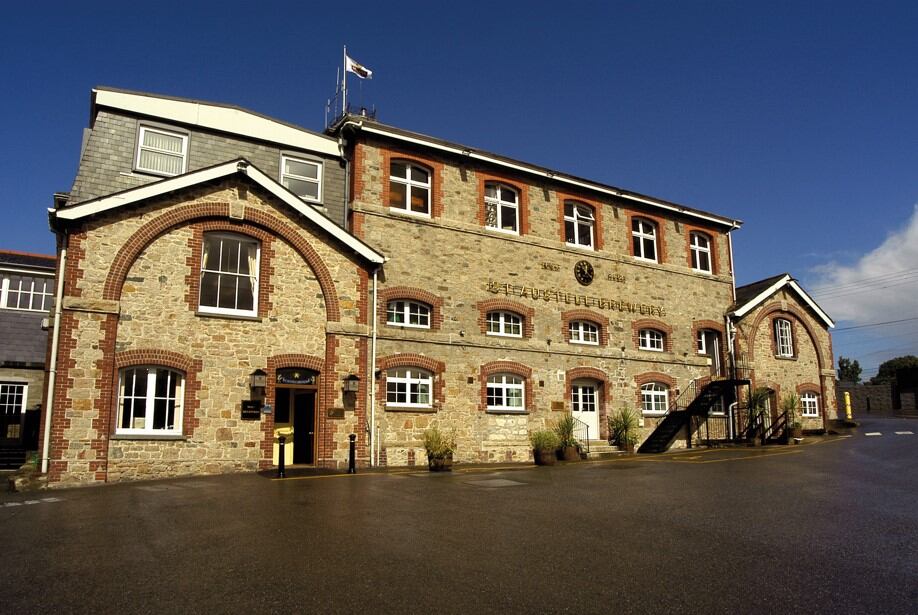The increases to Employer National Insurance Contributions (ENICs) and the National Living Wage (NLW), announced in the Autumn Budget, are set to come into force next month.
Yesterday (Thursday 20 March), St Austell Brewery announced the new employment costs would cost the business £3m per year.
As a result, it has placed some of its workforce, excluding teams in its managed pubs, into collective consultation due to the cost pressures.
CEO Kevin Georgel said the decision to explore redundancies was “not taken lightly”, adding it was “not realistic to pass all increased costs onto customers.
Myerson Solicitors, a top-200 law firm based in Greater Manchester, told The Morning Advertiser (MA) the tax rise has placed “unprecedented financial strain” on hospitality businesses.
Insolvency and restructuring legal director at Myerson, Vicky Biggs, said: “With already tight profit margins, many businesses cannot simply pass these costs onto customers without exacerbating inflation and reducing demand.
“St Austell Brewery’s decision to review its operational structure reflects the difficult choices many employers now face to remain sustainable in a challenging financial landscape.”
Unwelcome costs
From 1 April, the rate of ENICs will rise from 13.8% to 15%, while the threshold at which ENICs become payable will drop from £9,100 to £5,000.
The National Living Wage (NLW) for workers aged 21 and over is also set to increase from 1 April, by 6.7%, from £11.44 to £12.21 per hour.
Alongside this, the NMW for those aged between 18-20 will increase by 16%, from £8.60 to up to £10 an hour. Wage rates for under 18s and apprentices will also rise by 18%, from £6.40 to £7.55.
The tax hike, Myerson asserted, would “disproportionately” impact lower income and part-time workers.
According to the law firm, someone earning £25,000 will see their employer NICs rise by 36.7%, while a minimum-wage, part-time worker will see an increase of 74.5%.
Biggs continued: “For hospitality businesses like St Austell Brewery, which rely heavily on flexible and part-time workforces, this could make staffing more expensive and reduce employment opportunities for those in lower-paid roles.
“Beyond job losses, we are seeing a rise in insolvencies across the hospitality and leisure sector. Higher operational costs, combined with reduced consumer spending, have led to a growing number of businesses facing cash flow difficulties, late tax payments, and creditor pressures.
“Many are exploring restructuring options to stay afloat. Without targeted relief from the Government, the sector is at risk of further closures, impacting jobs and local economies across the UK.”
An exclusive survey conducted by The Morning Advertiser (The MA) earlier this month also revealed 80% of pub chiefs have planned to axe recruitment plans due to increases to wages and employment costs.
Trade body UKHospitality (UKH) estimated the tax rise could cost businesses across the sector an additional £3.4bn annually.
Shepherd Neame also this week stated it would need to mitigate the “unwelcome” cost increases, which it predicted would cost the business £2.6m.
Adapt accordingly
The Kent-based brewer and pub operator added this would impact figures for the final quarter of the 2025 financial year and the company would “adapt accordingly”.
This included putting 10 sites ‘under review’ for transfer from retail to tenancy over the next 12 months to improve returns, and is reviewing its annual core capex spend.
Meanwhile pub giant JD Wetherspoon (JDW), which operates around 800 pubs across the UK, recently claimed the tax rise would cost the company around an extra £1.2m a week in employment costs.
Speaking with Sky News on Wednesday 19 February, chairman Tim Martin asserted rising ENICs costs would have a bigger impact on the businesses than inflation.
He continued: “Nobody is going to lose their job at Wetherspoon, but it makes you circumspect about what you’re going to open in the future as a matter of common sense because you’re trying to calculate [if you] can still make a profit.”
Ahead of the Spring Statement, due to take place on Wednesday 26 March, operators and industry leaders have repeatedly called for action to address these issues and secure the long-term viability of the sector.
Former model turned pub owner Jodie Kidd also recently spoke out about the pressures face by operators.
In a post shared to social media site TikTok on Thursday 20 February, Kidd, who runs the Half Moon at Kirdford in Billingshurst, West Sussex, discussed the tax hikes and asked, “what is Labour doing?”
She continued: “I thought starting a pub going straight into the pandemic and the cost-of-living-crisis was hard enough, but God help us all in the pub industry. Very sad times.”





